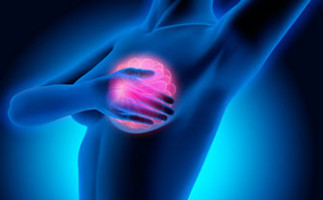
This study investigates the potential of amygdalin, a natural compound found in almonds, peaches, and apples, as a therapeutic agent for HER2-positive breast cancer.
Found in the journal LabMed Discovery.
HER2 (human epidermal growth factor receptor 2) is overexpressed in a significant percentage of aggressive breast cancer cases and is associated with poor prognosis.
The researchers aimed to explore whether amygdalin could effectively bind to and stabilise the HER2 protein, which could suppress its cancer-promoting activity.
To do this, the study employed a variety of computational tools.
Molecular docking was used to determine how strongly amygdalin could bind to HER2, and results showed favourable binding energies, especially when water molecules were included in the simulation.
Molecular dynamics simulations over a 100-nanosecond period revealed that amygdalin binding induced structural changes in the HER2 protein, particularly reducing the flexibility of the dimerization arm and decreasing interdomain distances—features associated with an inactive HER2 conformation.
The binding was shown to be energetically favourable, primarily driven by van der Waals forces, as revealed by MMPBSA energy calculations.
Finally, the study identified key amino acids within HER2 that contributed most to the binding interaction, and the presence of water was shown to enhance the stability and tightness of the binding.
The authors conclude that while these computational results are promising and show that amygdalin could interfere with HER2 activity, further in vitro and clinical studies are needed to validate its effectiveness as a treatment option.
Nonetheless, the findings offer a strong foundation for future drug development targeting HER2 in breast cancer.
The World Cancer Declaration recognises that to make major reductions in premature deaths, innovative education and training opportunities for healthcare workers in all disciplines of cancer control need to improve significantly.
ecancer plays a critical part in improving access to education for medical professionals.
Every day we help doctors, nurses, patients and their advocates to further their knowledge and improve the quality of care. Please make a donation to support our ongoing work.
Thank you for your support.